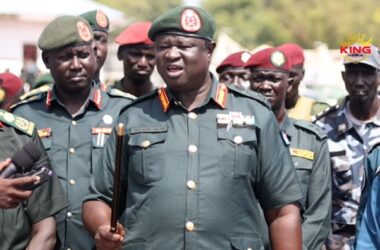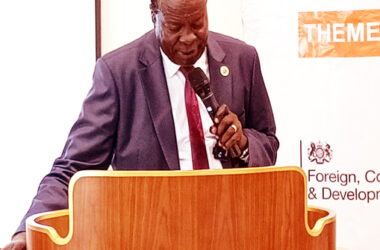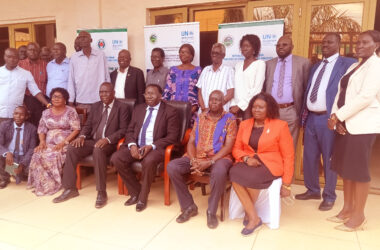By Jacob Onuha Nelson
Senior government officials have met to discuss efforts aimed at clearing pension fund arrears owed to civil servants, many of whom have gone unpaid for years.
The discussion involved the Vice President and chair of the Economic Cluster, Dr. Benjamin Bol Mel, and the Minister of Public Service and Human Resource Development, Dak Duop Bichiok.
The accumulation of the pension arrears is a direct consequence of severe economic challenges facing the country.
A significant drop in oil production and exports, reduced fiscal revenues, and the added strain on the economy caused by the influx of refugees fleeing conflict have put considerable pressure on government finances.
According to a statement extended to the state-owned South Sudan Broadcasting Corporation (SSBC), the government is facing pension fund arrears totaling an estimated 43 billion South Sudanese Pounds and 75 million US dollars, accumulated over the period from 2011 to 2023.
Minister Dak Duop Bichiok confirmed the scale of the problem and its significance for future action. “From 2011 to 2023, which amounts to 43 billion South Sudanese pounds and 75 million US dollars,” he stated, adding that this figure now provides a basis for planning.
“This point gives us directives how you’ll pay this money.”
The meeting also addressed challenges related to contributions from states that impact the government’s ability to clear national obligations like pensions.
“We discussed within the states that are not paying their contribution to the friendship part,” he stated.
He indicated that directives would be issued, starting with the states identified: Lake State, Northern Bahr El Ghazal, Central Equatoria State, Western Equatoria State, and Unity State.
In a related effort to improve payroll management and ensure accurate payments, the government is also moving forward with implementing a biometric system.
Minister Dak added that the system is considered beneficial for eliminating “ghost needs” (likely referring to ghost workers or fraudulent entries).
He noted that the World Bank has agreed to purchase the necessary equipment, and registration is planned to commence in June.



